News
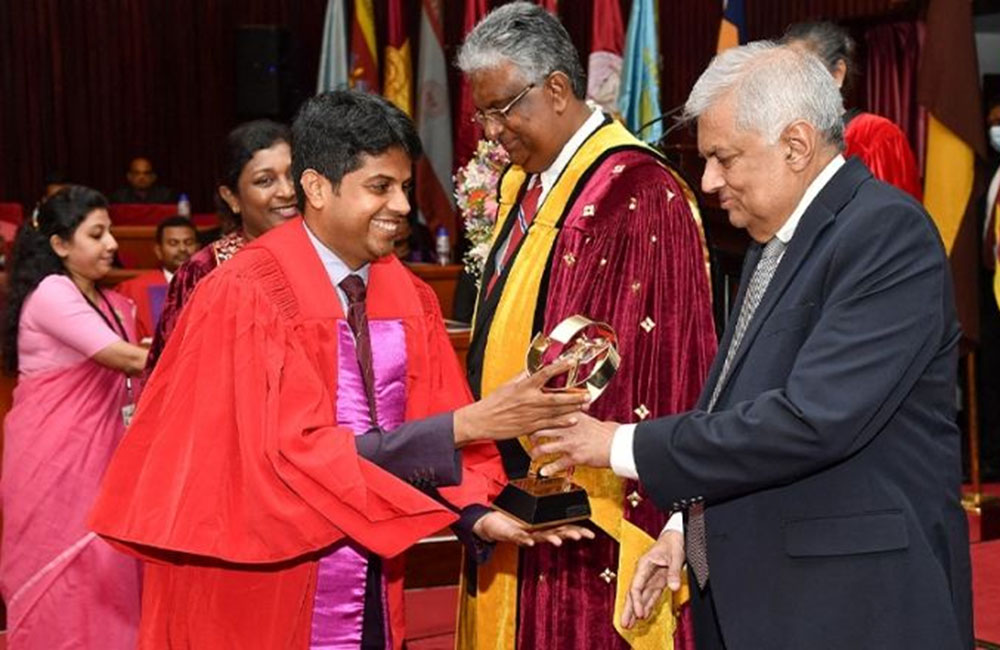
Sri Lanka university system: President highlights key concerns
President Ranil Wickremesinghe emphasized that the standards of the Sri Lankan universities were high on the list of Asian universities. The standard and reputation of the universities should be restored and improved once again in the country’s university system to attract students overseas. This would also help to improve the development of the country’s economy.
The president stressed that he is satisfied with the education received during his era compared to the present day. For many of the people during his time, the United Kingdom was a second choice, if not the first, after the University of Ceylon. However, when asked by the young generation today about the satisfaction of today’s education system, the answer would be negative. Even if they are selected for a university, they are trying to go abroad.
The President highlighted the need for fixing the issues with the educational system in this nation and added that conditions should be put in place so that everyone can complete their education at the appropriate age and move on.
President Wickremesinghe stressed the importance of being attentive to the South Asian population. In 2050, India will have about another 3–400 million, rising to 1.7 billion. The poverty level will decrease, while the better income number will increase. He anticipated that this change may occur in Bangladesh, Pakistan, Myanmar, and the East African nations.
They alone can’t be building universities. India will have nothing else to do if they are going to provide education for all of them, so they will either use other techniques. Therefore, Sri Lanka must be vigilant in these areas. If Sri Lanka has a sufficient number of universities, it would help to cater to some of them from those areas.
These remarks were revealed by President Ranil Wickremesinghe while addressing the “CVCD Excellence Awards” held at the Bandaranaike Memorial International Conference Hall in Colombo on Friday (9).
President Ranil Wickremesinghe attended the “CVCD Excellence Awards” ceremony as the Chief Guest and was welcomed by the Chairman of the Committee of Vice-Chancellors and Directors Sri Lanka (CVCD), Professor Sujeeva Amarasena, the Vice Chancellor of Ruhunu University.
Prof. Nilanthi De Silva, Vice-Chancellor of the University of Kelaniya, introduced the award ceremony in detail.
President Ranil Wickremesinghe was appreciated by the Committee of Vice-Chancellors and Directors (CVCD), Sri Lanka, for his excellent leadership and commitment in establishing an innovative research culture within the university system.
Organized biennially by the Committee of Vice-Chancellors and Directors Sri Lanka (CVCD), the “CVCD Excellence Awards” recognize and honor outstanding contributions and achievements in research, innovation, and invention by scholars in the Sri Lankan university system.
The awards are presented in three categories: Most Outstanding Senior Researcher, Most Outstanding Young Researcher, and Most Outstanding Inventor.
In this year’s awards ceremony, the Most Outstanding Senior Researcher and Most Outstanding Young Researcher Awards for the year 2022, Allied Health Sciences and Indigenous Medicine, Engineering, Architecture, and Technology, Humanities, Life Sciences, Management Studies, Medicine, and Dentistry, were awarded for eight fields of study: natural sciences, social sciences, and legal studies.
Accordingly, Professor B. it. K. S. Perera (University of Moratuwa), Professor D. M. Deepti Yakandawala (University of Peradeniya), Prof. Arosha Sarangi Adikaram (University of Colombo), Prof. Shaman Rajindrajith (University of Colombo), L. B. D. R. P. Wijesundara (University of Kelaniya), and Professor S. Mr. P. Karunanayake (Open University) received the Most Outstanding Senior Researcher Award.
Dr. A. N. Madushanka (University of Peradeniya), Dr. K. K. Asanka Sanjeeva (Sri Jayawardenepura University), Dr. W. H. M. Sanjeeva Samaratunga (Rajarata University), Dr. M. B. Kavinda Chandimal Dayasiri (University of Kelaniya), and Professor A. Mr. Sandaruwan Ratnayake (University of Uva Wellassa) received the Most Outstanding Young Researcher Award.
University of Moratuwa Professor Rangika Umesh Halwathura won the Most Outstanding Inventor Award.
Vavuniya University Vice Chancellor Professor T. Mr. Mangaleswaran delivered the speech of thanks, and members of the committee of Sri Lanka Vice Chancellors and Directors, family members of award-winning scholars, and others attended this event.
Following is the full speech made by President Ranil Wickremesinghe:
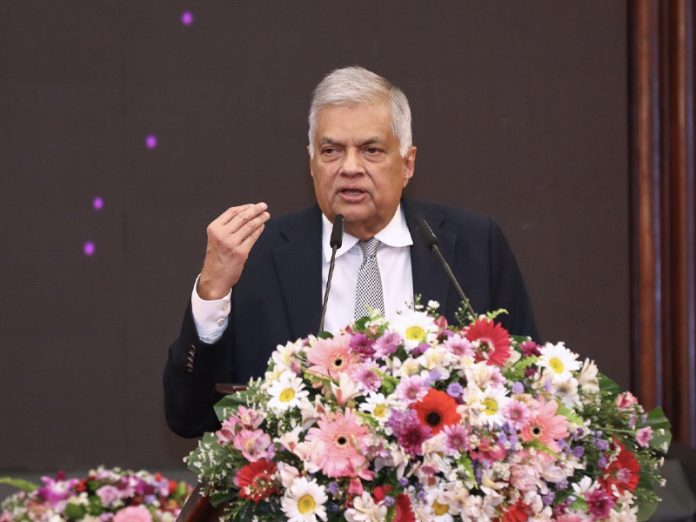 Seated here, I was thinking back to the time that I had finished A-levels and sat for the exam. My father also insisted that I take the London A-level, which was held in Madras. So I flew to Madras and sat for the London A-Level. But at the same time, I received the results of the Sri Lankan, as you called it, Ceylon A-levels, and I found that I had gotten into the university and had been selected.
Seated here, I was thinking back to the time that I had finished A-levels and sat for the exam. My father also insisted that I take the London A-level, which was held in Madras. So I flew to Madras and sat for the London A-Level. But at the same time, I received the results of the Sri Lankan, as you called it, Ceylon A-levels, and I found that I had gotten into the university and had been selected.
It was a simple system then. In none of these marking systems, all those who got four subject passes went in first, followed by those who got three subjects. I also got my A-level results from London A-level. I applied through UCCA, and there was one university that was prepared to take me based on Sri Lankan A-level results.
And others certainly considered me based on my London A-level results. So I had to make a decision whether I was going to stay here or go to the UK. I really thought of staying in Sri Lanka. My mother was insisting I go to the University of Ceylon, Peradeniya, because of my grandfather’s connections, but I had made up my mind. I felt that if I am to do law, it has to be in Colombo. Otherwise, I have to go on to another subject, like economics or history. So I am telling you, I never studied economics.
When I look back, I think that at that time, a lot of people told me this was a good degree. This is well accepted. The dean of that time, the professor of law, Professor Nadarajah, was the leading exponent of Roman Dutch law after Professor Lee died. We had a number of lecturers, the youngest, of course, being a young temporary assistant lecturer called G.L. Peiris.
I passed out, and I’m quite happy with my education here. But when I speak to young people today, I ask them, “Would you like to stay in Sri Lanka? The answer to many of them is no. Even if selected by a university. For many of us in the UK, it was a second choice if you were not selected for the University of Ceylon.
But it is not, so today, having spoken to them and listened to their views, I don’t know what I would do if I came to making a selection today. So, this is a crisis in the university system. It’s a part of the larger crisis in Sri Lanka itself and how we face the future. So we have to look at the university system and what the role of education is first, then look at the local issues.
As I asked the chairman, we have about 170,000 qualifying for the A-levels; of that, 40,000 get into universities here, and another 30, 000 to 40,000 go to universities abroad.
So that’s the difference. What’s the difference? So that another 40,000, of which I would say 25000 to 30000, would be prepared to enter Sri Lankan universities. We don’t have the resources, so that’s the first one. Are we going to have a system of universities coming under the UGC and universities outside the UGC, some for profit and others not for profit?
Three systems are functioning, or should we gradually look at building up one system of universities? So that’s the first one.
Secondly, the government makes money available to fund students’ higher education. But then we find that another group of students equal to the number in the universities is going outside and paying money. So, is this the best way we have? We must preserve one right, which is in the Universal Declaration of Human Rights: universal access to education. But different countries have different ways of doing it. Some give student loans; some help students who have economic issues but allow the others to go ahead. So, are we to study? I think we have to study all these systems and then ensure the government makes the funding available.
Look at the best system available for the maximum number to get their education. That’s the first item I think we have to go into if we can’t run away from the issue, because we will need a large number of engineers, a large number of doctors, and a large number of scientists. If we are to develop and go ahead, where are we going to get them? Who is going to educate them? That’s, I would say, the main issue we have.
Secondly, one of the standards is: where are we now? When I went to university, our universities were high up on the list of Asian universities. I am not talking about the world’s list of Asian universities. We are not so today; let’s be frank about it. How are you going to improve our performance? How are we going to ensure that these universities have a good reputation and standing?
Then you’ll attract students from other parts of the world, making your funding that much easier. How do the state universities function with disruptions and vice chancellors getting assaulted? That cannot happen. I think at some point we have to face these issues and resolve them. There’s no other way to do it. We must ensure that everyone studies so they can get ahead.
We have a big problem in the education system; people don’t sit for A-levels until they are about 20, and you’re about 24 when you pass out. I was 21 when I sat for my degree, 22 when I got the results, and we were not awarded degrees because they were from 1971, and 23 when I became an advocate of the Supreme Court.
I don’t think anyone I know now has touched that. That means the best part of your life You spend time at the university, then go to find a job. So these issues had to be resolved. Then you will find the non-UGC universities coming up, and then they get students because the job market is there.
Now, this is a problem not only for the UGC universities here but also for many universities abroad. But we had to find our own solution and not wait to see what others were going to do with regard to the universities. Then comes the issue of remuneration. Your main issue has been the present taxation, but another one that has been raised in universities is how you would pay your academic staff. In Western universities, each one is judged to be worth something in the market, and given that, are we to do that? Or are we going to carry on with this same system? As far as the non-UGC universities are concerned, I have no doubt that they will decide what the pay should be for each individual.
These are the issues that we have to face. And then the research that is being done: how are the peer reviews? What are the standards? There are allegations regarding some of the research items that have been made, and all that has to be cleared. I mentioned to the chairman and some of the VCs that we don’t have sufficient postgraduate studies in this country.
What are the postgraduate studies you have done?
The single University of Ceylon changed the culture of Ceylon with two plays “Maname” and “Sinhabaahu”. With that came the change. They produced the University of Ceylon History in four volumes. Some are maybe out of date, nevertheless, look at all the rest of it that they produced at the University of Ceylon. Have we all together in any way equalled that? I’m not asking about overtaking equalled that; that’s a question mark.
So, these are serious issues that we have to think about. If you don’t tackle these issues, you are going to face serious problems with the university education provided by the UGC University. Outside of that, there is the question that every university has to face today. What is a university? How do you educate? You had social media; you had it online.
You have AI, and you have chat GPT, which people use for exams and some for their postgraduate research. So, can these brick-and-mortar institutes suffice? Or are we to use the technology? This is another issue that we have to take up. So, my effort is to ensure that you are focused on this and come up with solutions.
If you look at the population of South Asia in 2050, India will have about another 3–400 million, maybe going up to 1.7 billion. And that poverty level will decrease, and better income numbers will increase. This will happen in Bangladesh, Pakistan, Myanmar, and the East African nations. Now all of them can’t build universities. India will have nothing else to do if they are going to provide education for all of them, so they will either use other techniques. So, we have to be sure of that. But if we have a sufficient number of universities, we can cater to some of them from those areas. Now they are catering to our needs. But there may come a time when we have to cater to their needs.
So, these are the issues we have to think of because the structure of the universities will no longer be the same. There was a big debate originally about the first university in Ceylon, whether it was to be residential or not. They took the Oxford and Cambridge Model, and that’s the structure of Peradeniya University. But if you look at the newer universities, all the residents are no longer there.
Now, the question is not whether they are going to be halls of residence. Will there be halls for lectures?
So, we have to address these issues and find solutions because we have appointed a Cabinet Committee on Education, which is going into all the issues. So I thought I’d mention to you all: what are the questions that we will be posing to you? So I don’t want to take any more of your time, but I must congratulate all those who got the awards here.
What you have done is to raise the reputation of Sri Lankan universities for research, and taking that into account, we will make more money available for research. But how are we going to do it? We haven’t determined yet. I thought I would put about a billion aside for a year. I don’t know if you can use it for the other subjects as well.
And by then, we’ll have the Institute of History for History and Archaeology to carry on. So thank you again for inviting me, and all the best to the award winners.
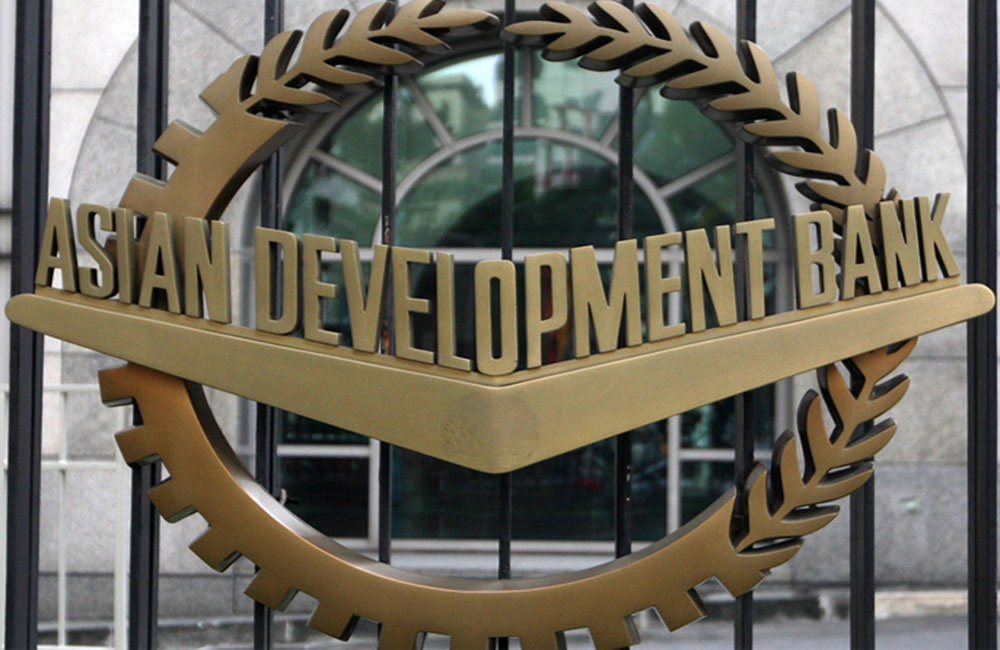
ADB Provides Sri Lanka Access to Concessional Financing
The Asian Development Bank (ADB) has approved the eligibility of Sri Lanka to access concessional financing.
The availability of concessional assistance, offered at low interest rates, broadens Sri Lanka’s options to bridge its urgent development financing needs to restore economic stability and deliver essential services, particularly to the poor and vulnerable.
Eligibility for concessional resources among the developing member countries of ADB is based on gross national income per capita and creditworthiness.
ADB’s decision was considered based on a request from the Government of Sri Lanka in view of the severe and unprecedented economic crisis that has reversed hard-won development gains.
“ADB is committed to further enhancing its support for the people of Sri Lanka as the country responds to this deep crisis that has severely undermined their livelihoods and well-being,” said ADB Director General for South Asia Kenichi Yokoyama.
“The availability of concessional assistance will help Sri Lanka to lay the foundation for economic recovery and sustained, inclusive growth” added Kenichi Yokoyama.
Sri Lanka is now eligible for ADB support including concessional and market-based financing, technical assistance, policy advice, and knowledge solutions that together comprise a comprehensive suite of options to address the crisis. Access to concessional financing will also ease debt servicing pressures through more favorable lending terms.
ADB is committed to achieving a prosperous, inclusive, resilient, and sustainable Asia and the Pacific, while sustaining its efforts to eradicate extreme poverty. Established in 1966, it is owned by 68 members 49 from the region.
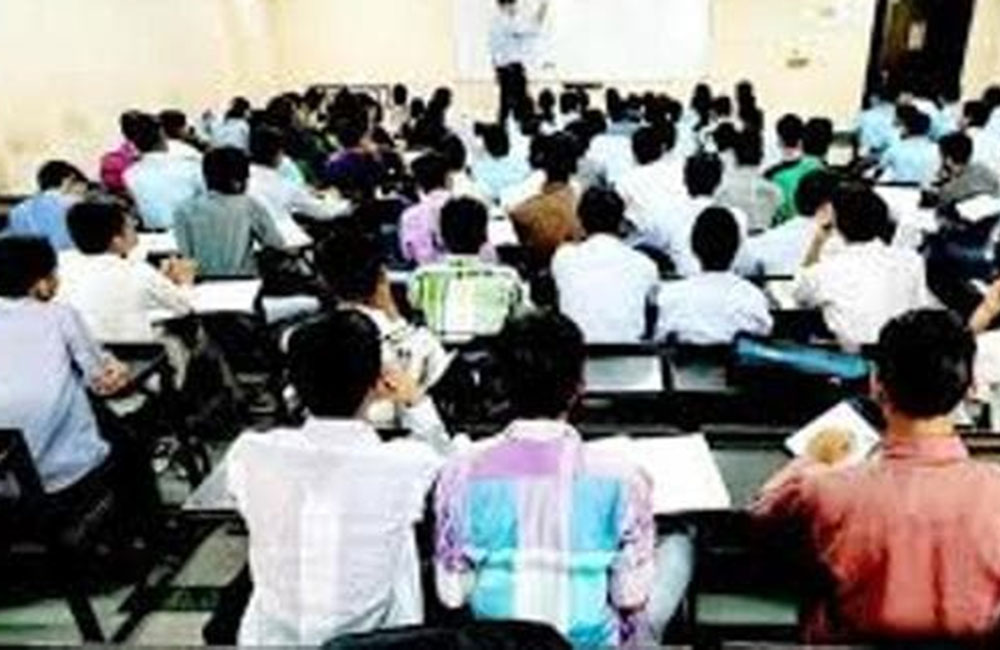
Jaffna private tuition classes banned on Friday evenings and Sundays
Jaffna District Secretary A. Sivabalasundaram says that measures were taken to ban private tuition classes on Fridays and Sundays from the first of July.
He says that private tuition classes on Friday evenings and Sundays have been banned for classes below grade 9.
The decision has been taken in the discussion held with health officials, police, private tuition class owners, teachers, and child development officers of the Jaffna district.
The district secretary says that the matter will be discussed with the district development committee.
The Jaffna District Secretary also says that every private tuition class should be registered in the District Secretariat.
He adds that sanitation facilities should be fulfilled in every private tuition class within the district.
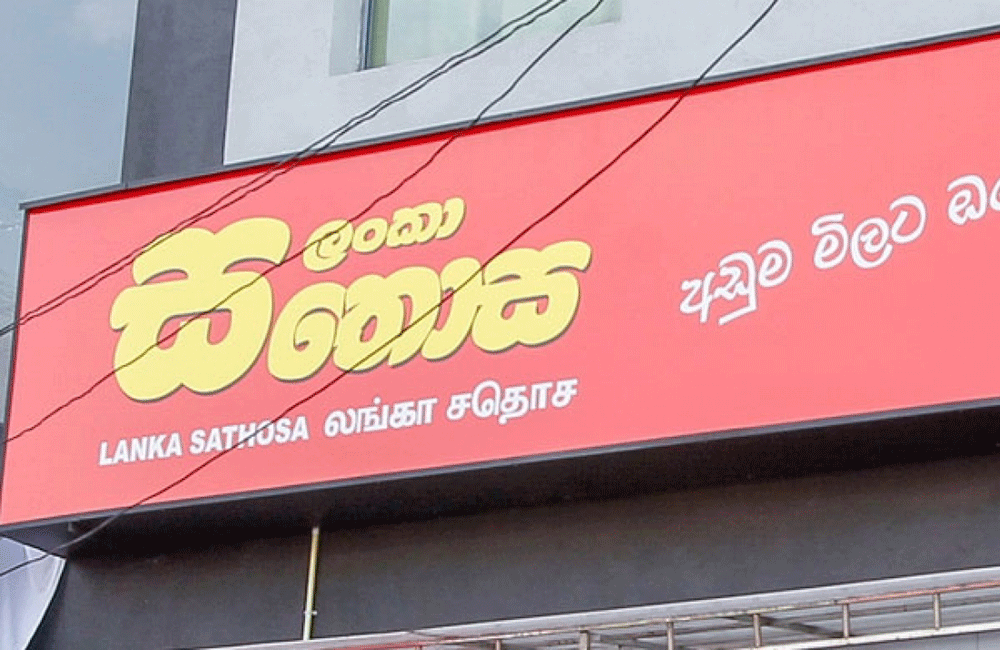
Sathosa further reduces prices of essential food items
The prices of 10 essential food items will be slashed with effect from Friday (June 09), Lanka Sathosa.
The revised prices are as follows:
• Mung beans – Rs. 1,225 per kilogram (reduced by Rs. 325)
• Dried chillies – Rs. 1,290 per kilogram (reduced by Rs. 60)
• Red lentils – Rs. 299 per kilogram (reduced by Rs. 15)
• Red Nadu rice – Rs. 200 per kilogram (reduced by Rs. 15)
• Thai sprats – Rs. 1,140 per kilogram (reduced by Rs. 10)
• Wheat flour – Rs. 200 per kilogram (reduced by Rs. 10)
• Soya meat – Rs. 650 per kilogram (reduced by Rs. 10
) • Red rice – Rs. 139 per kilogram (reduced by Rs. 6)
• Chickpeas – Rs. 540 per kilogram (reduced by Rs. 5)
• White sugar – Rs. 225 per kilogram (reduced by Rs. 4)

Prices of mobile phones, appliances to be reduced
The prices of mobile phones and appliances will be reduced as per the rupee’s appreciation against the US dollar, said the importers.
President of their association Samitha Herath told journalists in Colombo yesterday (09) the reduction will be around 20 per cent.
In the event of a depreciation of the rupee, prices will have to be raised again, he said.
Sales of mobile phones dropped by around 40 per cent in recent times due to high prices.
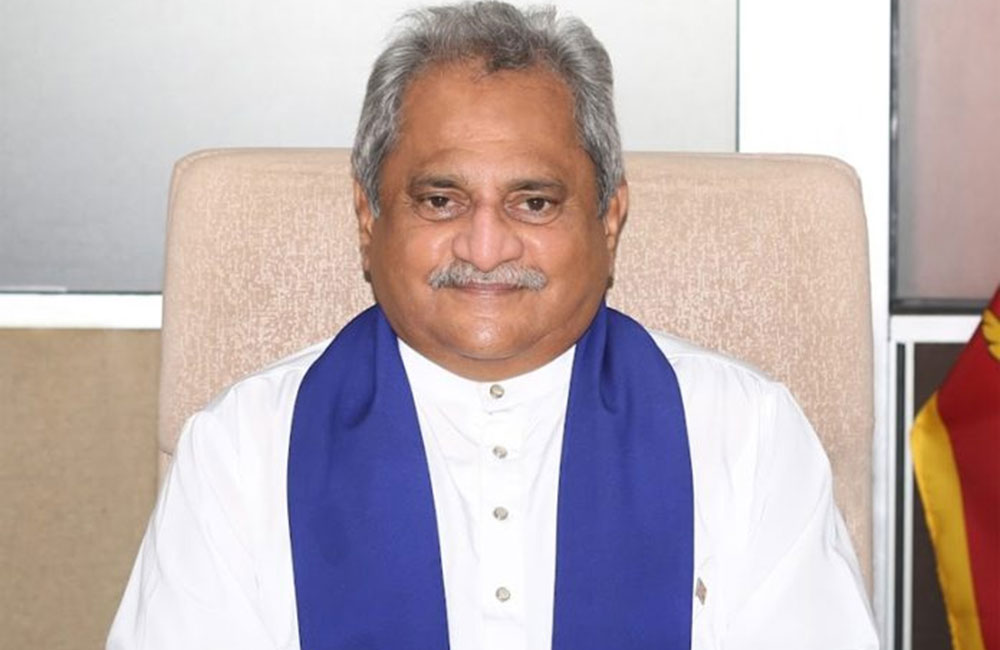
Governor of Sabaragamuwa Province resigns
The Governor of the Sabaragamuwa Province, Tikiri Kobbekaduwa, has resigned from his post with effect from 10 June, 2023.
Accodingly, it is confirmed that Kobbekaduwa has already submitted his letter of resignation to President Ranil Wickremesinghe.
Kobbekaduwa was sworn in as the Governor of the Sabaragamuwa Province in November 2019, before former President Gotabaya Rajapaksa.
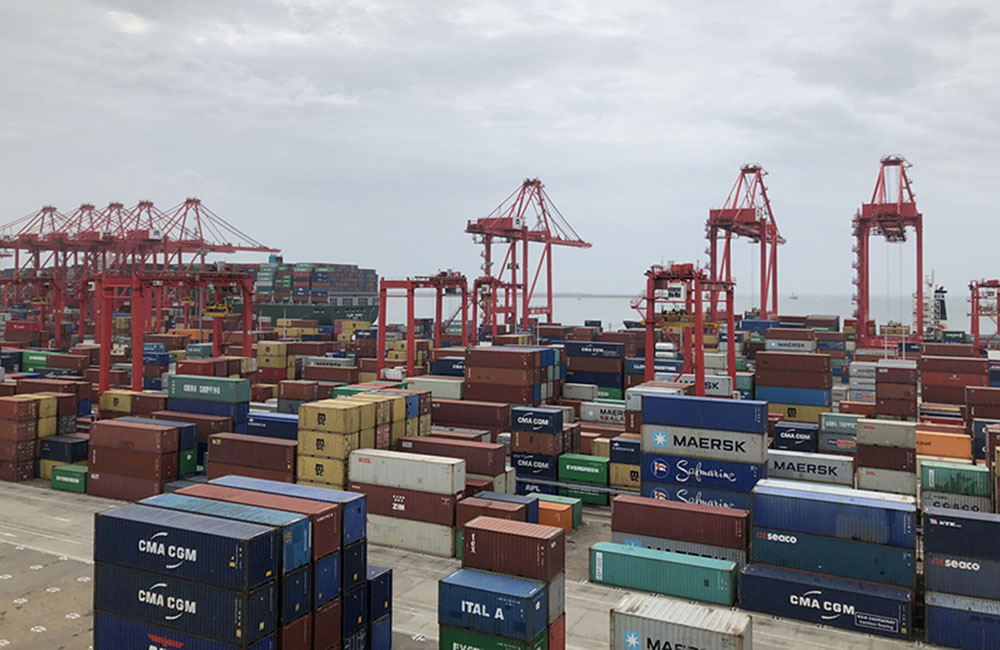
Sri Lanka relaxes import restrictions on over 300 items
The government has issued a gazette notification relaxing the import restrictions imposed on more than 300 items including electronic equipment, sanitaryware and food items.
The relaxation of import restrictions came into effect on June 09, 2023.
The communiqué was issued by President Ranil Wickremesinghe, in his capacity as the Minister of Finance, Economic Stabilization & National Policies, pursuant to the powers vested in him under the Imports and Exports (Control) Act No. 01 of 1969.
This gazette notification, published on the Treasury website, further amends the regulations published in the Gazette Extraordinary No. 2312/78 dated January 01, 2023.

Sooriyawewa PS Secretary remanded for accepting bribe
The Secretary of the Sooriyawewa Pradheshiya Sabha (PS), who was arrested for soliciting a bribe of Rs. 50,000, has been remanded until 20 June.
He was ordered to be held in remand custody by the Hambantota Magistrate’s Court.
The suspect was arrested by officers of Commission to Investigate Allegations of Bribery or Corruption (CIABOC) while accepting a bribe of Rs. 50,000.
The Bribery Commission says that after acquiring the Sooriyawewa fair ground for the year 2020/2021 on a lease basis under his brother’s name, the complainant had made a request to grant relief for the amount deposited by him for the period when the fair could not be maintained due to the Covid-19 pandemic situation in the country.
Based on that request, the complainant was to be returned a portion of his deposit and in order to issue this the Secretary of the Sooriyawewa Pradeshiya Sabha had demanded a bribe of Rs. 100,000, which he had later agreed to reduce to Rs. 50,000.
The suspect was remanded after he was produced before the Hambantota Magistrate’s Court today, Police said.

Seven Policemen remanded over death of suspect in Police custody
Seven Policemen who were arrested over the custodial death of a Vocational Training Officer in January have been remanded until 23 June by the Maligakanda Magistrate’s Court.
Police Spokesman SSP Nihal Thalduwa stated that among those arrested are a Police Sub-Inspector, a Sargent and five constables attached to the Police Narcotics Bureau (PNB).
The Assistant Manager at the Vocational Training Authority in Narahenpita had been taken away by a group of Police officers while returning to work from a restaurant at lunchtime on 10th January 2023.
At the time, it was revealed that he had been taken away by PNB officials with regard to an investigation into a drug-related case.
The victim was reported dead with the authorities claiming that he had attempted to attack a Police officer with a broken glass bottle during interrogation.
However, the Maligakanda Magistrate’s Court on Tuesday (6) ruled that the cause of death of the victim was Blunt Force Trauma.
While delivering the order on the postmortem, the Maligakanda Magistrate ordered the immediate arrest of those responsible for the death.
Following the court verdict, the seven PNB officers involved in the incident were apprehended today.
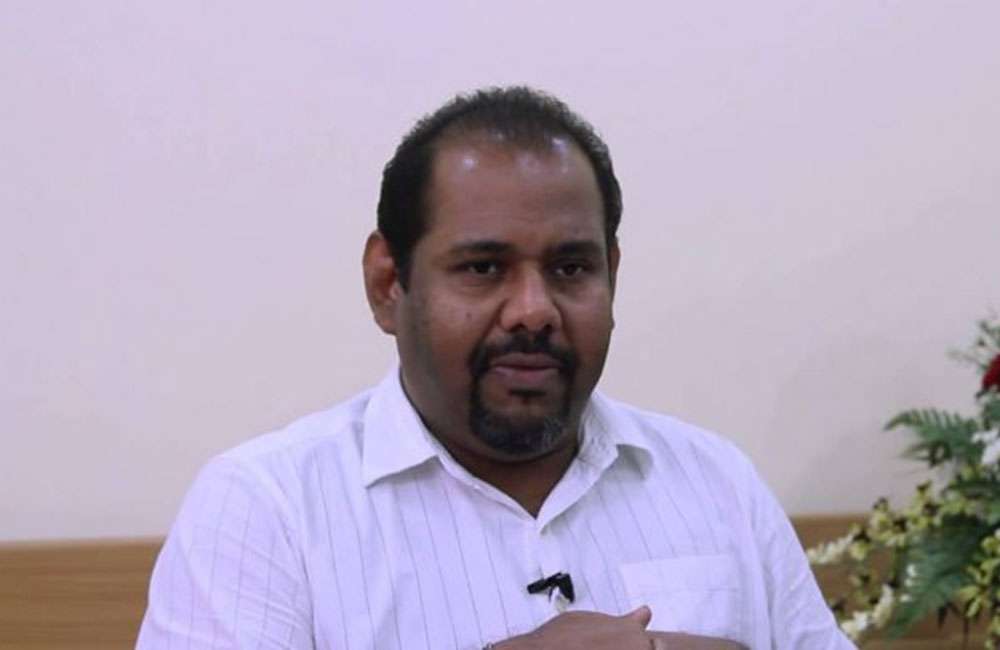
MP Gajendrakumar released on bail
Parliamentarian Gajendrakumar Ponnambalam from the Tamil National People's Front who was arrested earlier in the day, was released on bail after he was produced to the Killinochchi Magistrate's Court.
He was arrested on Wednesday (7) morning for allegedly obstructing the duties of police officers in Jaffna, recently.
Parliamentarian Gajendrakumar Ponnambalam from the Tamil National People's Front was arrested at his Colpetty residence on Wednesday (7) morning.
A special police team from Killinochchi has reached Colombo to make the arrest.
The Parliamentarian was first taken to the Colpetty Police, and thereafter was taken to Killinochchi to be produced in court.
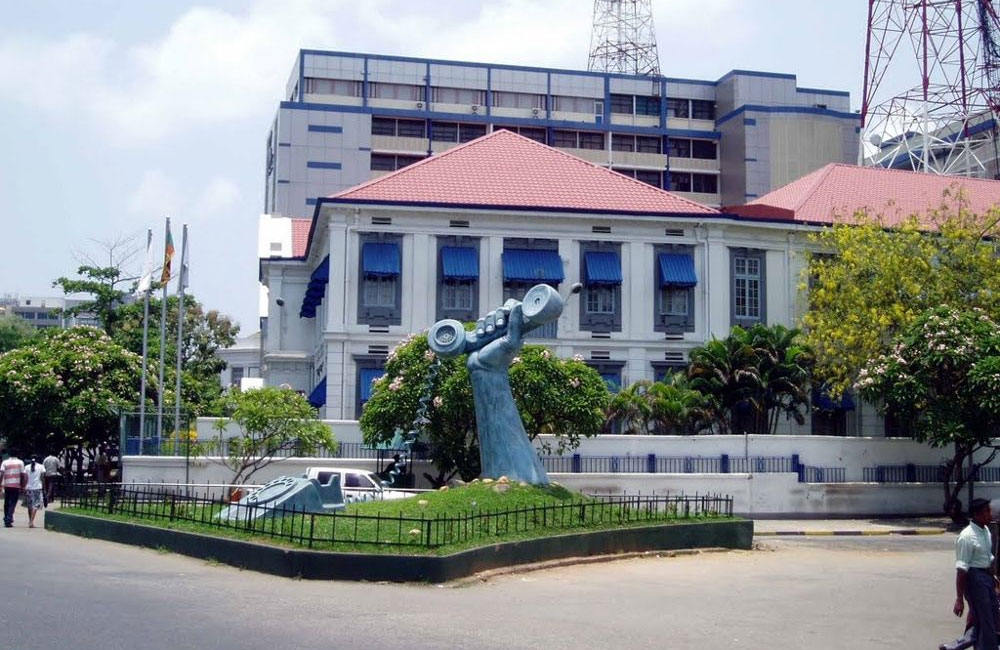
Privatization of SLT : Govt. unlikely to accept House committee recommendation
The government is unlikely to accept a recommendation by the sectoral oversight committee on national security against privatizing Sri Lanka Telecom.
A further privatization of SLT could threaten national security, said its chairman Sarath Weerasekara tabling a report in the House today (09).
A senior minister said the government has already taken a policy decision to privatize SLT.
A copy of the sectoral oversight committee titled ‘The effects of the privatization of Sri Lanka Telecom on National Security’ has already been sent to president Ranil Wickremesinghe.
The report said SLT is already partially privatized with international companies holding 44.98% of the stake and the government holding 49.5%.
Hence, further privatization would expose the country's critical communication infrastructure/sensitive information to private entities whose profit-oriented interests can compromise national security, said the report.
The report also said that anyone or organization who had been blacklisted, helped terrorists, extremists in any form should not be allowed to buy any share and have any control over the country's national assets.
It proposed that the state can buy back the other large shareholder of Telecom as provided for in the agreement, divide the segments into sensitive & vulnerable, excess lands & buildings, critical infrastructure and the business.
"Whilst retaining the first segments effecting National Security, the state can divest the others holding a major share through Private Public Partnership ensuring critical infrastructure is protected and all government regulations are adhered to. This way the government can exit from doing business whilst making profit and ensuring National Security, the report recommended.
Pointing out that SLT fixed connections are provided to diplomatic missions, high-level public sector cooperates, businesses, defence services, and the police, it noted that there is a high risk of information of ‘important subscribers’ getting leaked out, if the company is privatized.
“Voice and data could be passed to a third party both locally and overseas.”
If the privatization move goes ahead, the report said the government would lose control and will be impossible to understand which subscribers are tapped and monitored and the call detail records of VVIPs and security agencies can be easily extracted from billing systems/network elements and passed to wrong hands.
It noted that in the mobile network, without the knowledge of the user, the private operator can also do geo fencing (allow or disallow certain areas), know the location of SIM card user, track the path, get browsing data, switch off a mobile device remotely using MDM software.
The report stressed that the government must ensure that non-state actors do not have easy access to vital information that can be detrimental to national security.
“National Security is not only the protection against military attack, but it involves non-military dimensions such as economic security, energy security, food security, etc. and most importantly cyber security.”
Further, a successful cyber-attack on telecommunications could disrupt service for thousands of phone subscribers, deny internet to millions of customers, cripple business, shut down government operations gravely affecting the national security.
Private companies may not commit funds to ensure adequate counter measures cyber-attacks (such as firewalls, electronic surveillance and access control devices) as national security is not their priority. “Private companies have a legal obligation to maximize profits for their shareholders and as such will not operate in the public interest.”
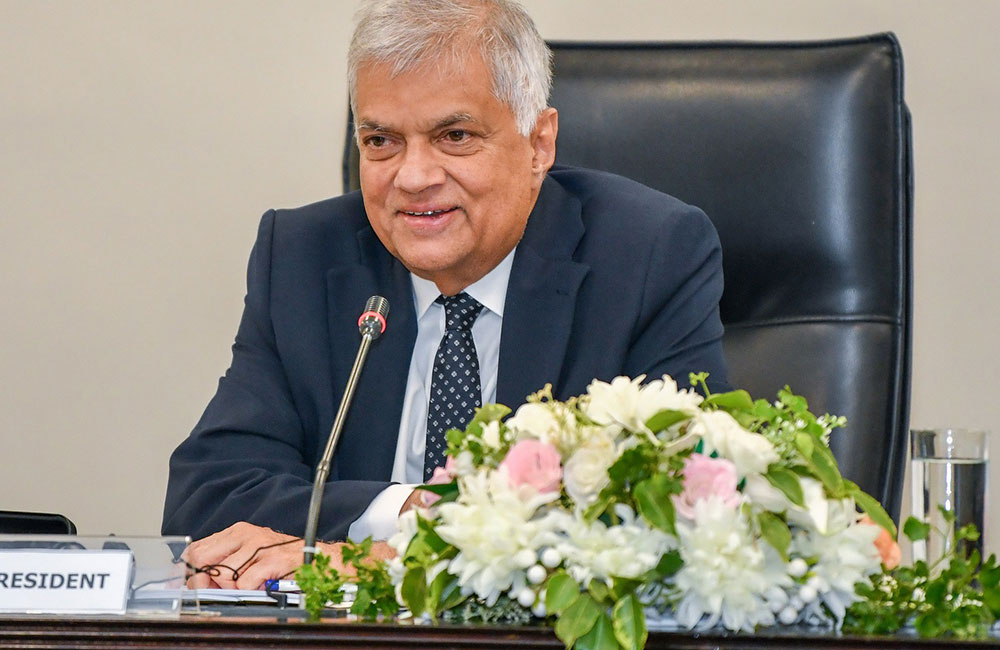
Harsha appointed COPF chairman
Opposition MP Dr. Harsha de Silva has been appointed chairman of the Committee on Public Finance (COPF).
The President's Media Division said that the SJB MP was appointed on the recommendation of President Ranil Wickremesinghe.
"Standing orders should be followed when appointing chairmen of committees and advisory bodies. According to the existing standards, the chairmanship of the Committee on Public Finance Committee should be offered to members of the opposition. Harsha de Silva’s name and the names of several other members were proposed for this purpose. MP Mayantha Dissanayake has resigned as chairman. If the opposition suggests it, MP Harsha de Silva should be appointed head of the Committee on Public Finance. The IMF agreement was approved by Parliament. The newly appointed chairman should conduct himself appropriately," President Wickremesinghe said.
Page 244 of 660